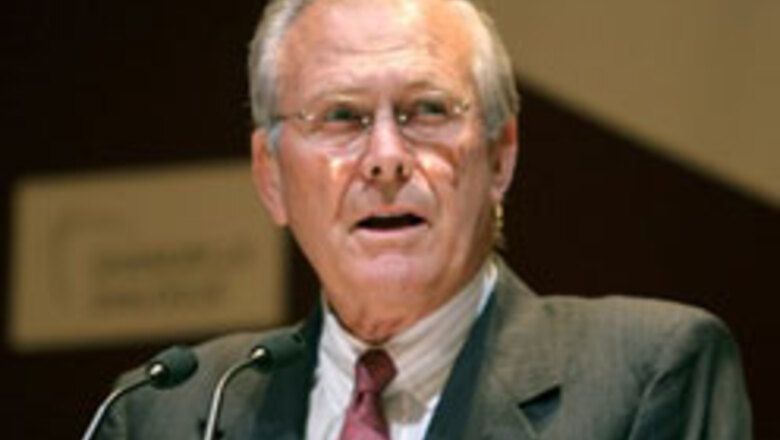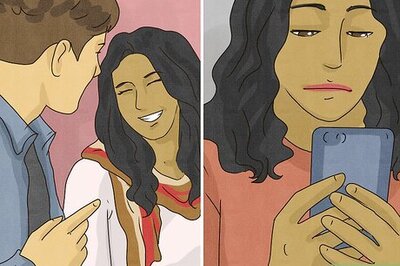
views
Washington: He has been the square-jawed face of the war, the man behind the wars in Iraq and Afghanistan which he predicted were just the beginnings of a long, hard slog. On Wednesday, Defense Secretary Donald Rumsfeld resigned and became the latest casualty of those conflicts – a victim of a war he contended the American public did not understand.
Standing next to US President George W Bush, Rumsfeld, 74, offered no regret for a war that mushroomed into an issue, which helped carry Democrats to victory in Tuesday's elections.
Instead, he provided a glimmer of the temperament that has prompted some critics to call him arrogant.
The war, he said, "is not well-known. It was not well understood. It is complex for people to comprehend."
He alluded to the crescendo of calls for his ouster, quoting Winston Churchill, "I have benefitted greatly from criticism and at no time have I suffered a lack thereof."
Bush said Robert Gates, 63, who has held several national security jobs, would be nominated to replace Rumsfeld.
“Secretary Rumsfeld and I agreed that sometimes it's necessary to have a fresh perspective,” Bush said in the abrupt announcement.
Representative Ike Skelton of Missouri – top Democrat on the House Armed Services Committee – said the resignation would be a positive step only if accompanied by a change in policy.
“I think it is critical that this change be more than just a different face on the old policy,” Skelton said.
In the days after September 11, Rumsfeld was hailed by some as a visionary. His management of the attack on Afghanistan in 2001 was deemed a success, as US forces drove out the Taliban.
Rumsfeld's plunge began soon after the 2003 fall of Iraqi leader Saddam Hussein. After the initial assault was over, the bloodier struggle for peace began. While some blamed him for having no plans for post-war Iraq and misjudging the strength of the insurgency, others said he served as the lightning rod for criticism of Bush's war.
What Happens Now in Iraq?
- President Bush, under the Constitution, still has control over the armed forces. That won't change.
- What will change is the substantial pressure on Bush to adjust his policies. If he doesn't, Republicans could lose the 2008 elections.
- Bush was cagey about whether Rumsfeld's departure signaled a new direction in the war. "Well, there's certainly going to be new leadership at the Pentagon," Bush said.
- Emphasising he won't bow to those pushing for a quick US withdrawal, Bush said, "I'd like our troops to come home, too, but I want them to come home with victory."




















Comments
0 comment